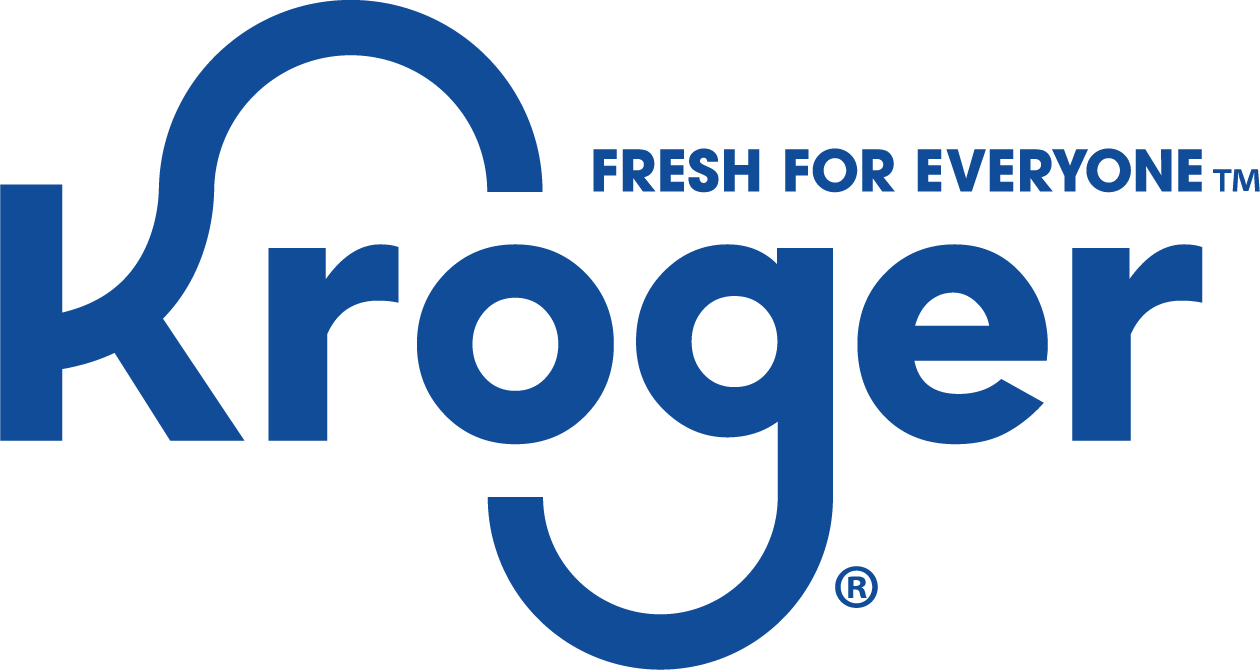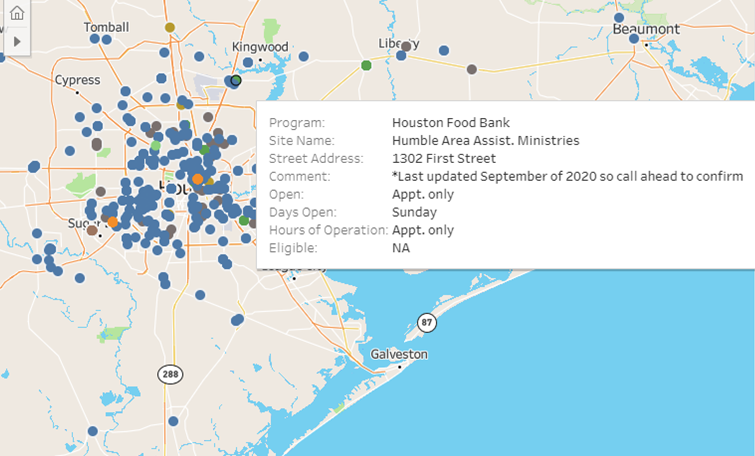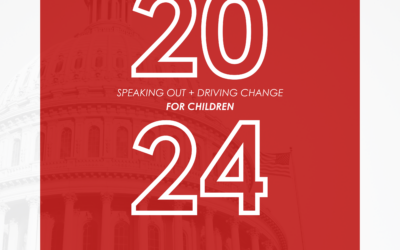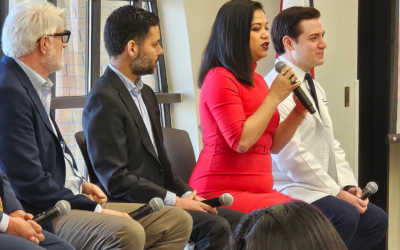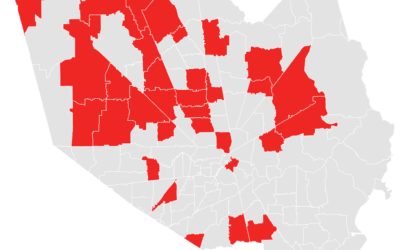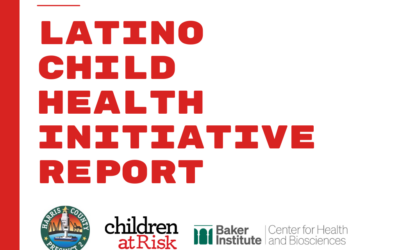Health
1 out of every 5 uninsured children in the United States lives in Texas
CHILDREN AT RISK believes all children deserve a healthy food environment, safe opportunities for an active lifestyle, and access to preventative health services.
Center for Child Health Research & Policy
Without access to adequate healthcare and nutrition, children can’t properly grow, learn, and thrive. Early gaps, in a child’s fundamental health needs, have proven to have long-term consequences for health, educational attainment, and economic security later in life. CHILDREN AT RISK’s Center for Child Health Research & Policy (CCHRP) strives to improve the health of all children through collaboration, policy, research, and education. The Center believes that organizations across sectors should work together to create an infrastructure that aims to provide all children with a healthy food environment, safe opportunities for an active lifestyle, and access to preventative health services for them and their caregivers.
The Center for Child Health Research & Policy
Researches the root causes of economic, racial, and social disparities in children’s health.
Collaborates with community health experts, hospital systems, clinics, and schools to address disparities in health, prevent adverse childhood experiences, and tackle food insecurity.
Advocates for strategies to increase access to healthy foods, policies that protect recess and outdoor playtime for children in schools, supports maternal health, and extends health coverage for children.
Featured Resources
Free or Low-Cost Meals Maps
OUR LATEST HEALTH RESEARCH & RESOURCES
Virtual Press Conference: CHILDREN AT RISK and Community Leaders on the Future of the Child Tax Credit
C@R and researchers, family policy experts, and community leaders will hold a press conference urging Congress to ensure that any revisions to the Child Tax Credit (CTC) maintain its proven support for working families. Media Contacts:Morgan Gerri,...
2024 Annual Report
Dear Friends and Advocates, At CHILDREN AT RISK, we believe that every child deserves a fair shot at success—and we know that it takes all of us to make that happen. Whether you’re a policymaker, educator, donor, volunteer, or advocate, your partnership has helped...
CHILDREN AT RISK Condemns Unlawful Deportation of U.S. Citizen Children
FOR IMMEDIATE RELEASE CHILDREN AT RISK Condemns Unlawful Deportation of U.S. Citizen Children and Urges Immediate Federal Action Houston, TX — CHILDREN AT RISK, a non-partisan research and advocacy nonprofit dedicated to improving the quality of life for children,...
Press Conference: Protecting Families and Children Amidst the Growing Measles Outbreak in Texas
Texas faces a growing measles outbreak, highlighting a critical need for increased public awareness to protect children. Media Contacts:Morgan Gerri, 832.600.9354Rashena Franklin, 713.301.4577 TEXAS (March 11, 2025) – Since January, Texas has reported a troubling...
RECAP: The Future of San Antonio 2025
Family Service San Antonio and CHILDREN AT RISK collaborated to present the second annual Future of San Antonio community event on February 28, 2025 On February 28, 2025, CHILDREN AT RISK and Family Service San Antonio co-hosted The Future of San Antonio: Investing in...
Fall 2024 | Early Childhood Education Texas Tour
CHILDREN AT RISK's Early Childhood Texas Tour is coming to a city near you, and you won’t want to miss it. C@R is hitting the road with 12 in-person stops across the state, bringing together child care providers, community leaders, and anyone passionate about...
2024 Latino Child Health Initiative Map
Latino Health Initiative Neighborhood Analysis Latino children endure disproportionate probabilities of suffering from systemic inequities, particularly regarding health and healthcare services. Language barriers, immigration status, lack of transportation and...
2024 Latino Child Health Initiative Report
In Texas, almost half of the population of children under the age of 18 are Latino, yet there has not been a concerted effort to address the particular health issues facing this population. Latinos account for 48% of the population in Harris County Precinct 2 and are...
2024 C@R Special Events
Special Eventsconvening for change Every dollar donated helps us improve the lives of Texas children. CHILDREN AT RISK is a 501(c)(3) non-profit organization (EIN: 76-0360533). Contributions are tax-deductible to the fullest extent allowed by law. It is with immense...
2023 Annual Report
It is with immense pride and joy that we announce the start of a significant milestone: the 35th Anniversary of CHILDREN AT RISK. For over three decades, our organization has been at the forefront of advocating for the well-being and rights of vulnerable children,...
2024 C@R Learning Events
Learning Eventsconvening for change CHILDREN AT RISK is committed to hosting free events that engage the public and help them drive change for children. We aim to share research, unpack pressing policy issues, and highlight diverse community perspectives from across...
Ensuring the Mental Well-Being of Latino Children: The Importance of School-Based Mental Health Services and Parent Intervention
The Latino population represents the largest and fastest growing minority group in the United States. Data suggests that schools in the United States now enroll more than twice as many Latino students as they did in 1995, and it that by the end of 2030, Latino...
